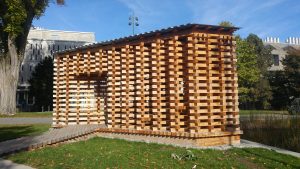
I always thought of myself as an independent learner, especially after having taken a few online courses. I expected ENGL 301 to be similar to my other experiences but staying on task was not easy. Instead of having exams like traditional courses, this course was a continual learning process that oftentimes involved a lot of work on the same assignment. Projects such as the formal report required extra dedicated time on top of other assignments. Instead of taking the approach of doing a bit of work each day I realized dedicating large blocks of time for writing helped me maintain my train of thought and complete assignments more efficiently.
In ENGL 301 we covered many topics of technical communication that were new to me, and got the chance to work on interesting assignments in groups. A memorable part of this course was receiving and giving frequent peer feedback. This helped me improve greatly, compared to other courses that rely solely on instructor feedback. Some assignments that showcase my strengths are: the memo to Evan Crisp, and the application package. Both of which explored writing with YOU-attitude, a new topic I was introduced to in this course. The instructor’s blog had some useful examples that I often referred to while writing. My work was both professional but personal, so as to show respect to the reader while delivering a clear message.
The assignment I am most proud of is my peer review to Jobina of her formal report draft. This peer review took a lot of time and refinements because my first draft included many imperative verbs, negative phrasing, and the past tense. Reading through, my feedback seemed far too critical and demanding. So, I replaced the imperative verbs with “-ing” verbs and rephrased about 25% of the review, making everything more reader-friendly.
At the beginning of the course, I hoped to focus on conciseness and organization. Reading my team members’ writing helped in those compartments- we each had a unique style and there was lots of learn from. I really appreciate the feedback from “Smells Like Team Spirit” (my writing team) and am very fortunate to have learned from students from different backgrounds. (Good luck everyone in your amazing endeavors!)
This whole experience was worthwhile and memorable. A few years down the road I see myself using the communication skills from ENGL 301 in the field of education. I have always been interested in teaching and finding ways to better communicate science to children and youth. Now I am better equipped to explain STEM to different audiences and bridge the gap between scientists and students. Being a teacher would capture a lot of my interests but regardless of which path I choose, this course has provided me with useful templates and guides such as the application package and web folio that will come in handy in the future.




